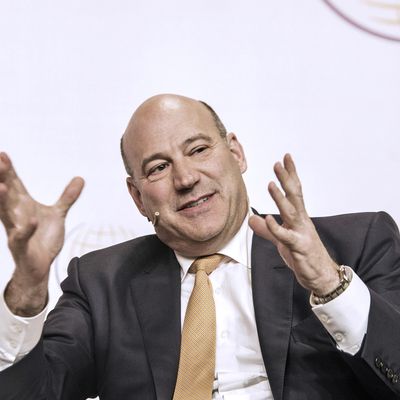
“I know the guys at Goldman Sachs,” Donald Trump told supporters in South Carolina last February. “They have total control over Hillary Clinton.”
Clinton’s fealty to the finance industry in general — and Goldman Sachs in particular — was one of Trump’s most consistent lines of attack against the Democratic nominee.
The closing argument of the president-elect’s campaign featured images of Hillary Clinton and Goldman Sachs CEO Lloyd Blankfein, as a voice-over decried the “global power structure” that had “robbed our working class.”
Thanks, in part, to Clinton’s genuine personal and professional ties to the mega-bank, Trump’s attacks proved effective: Even the GOP nominee’s biggest detractors came to view his opponent as uniquely deferential to Wall Street’s interests — despite the fact that she was proposing new regulations on the industry, while Trump was pledging to free it from the shackles of Dodd-Frank.
On Friday, Donald Trump tapped Gary Cohn, the president and chief operating officer of Goldman Sachs, as his choice for director of the National Economic Council — the advisory board tasked with shaping and coordinating the president’s economic agenda.
It’s uncertain whether Cohn will accept the post, but he had discussed a potential departure from Goldman Sachs with the firm late last month, according to CNBC.
Trump had previously tapped Goldman Sachs alums Steve Mnuchin (for Treasury Secretary) and Stephen Bannon (for White House chief strategist).
Cohn’s appointment highlights one of the many hard lessons of the 2016 election: You don’t just vote for a candidate at the ballot box — you also vote to empower a coalition. Hillary Clinton’s coalition included much of the finance industry, yes; but it also included a lot of people ready to give Clinton major headaches, were she to select her cabinet from the guest list at Lloyd Blankfein’s Christmas party.
All signs suggest Donald Trump’s head is feeling just fine.






























